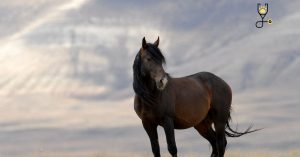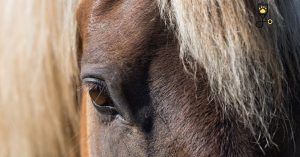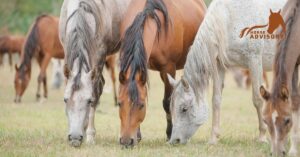There are many things you can do to horses to make them healthy and happy, but there are also a few things you should never do. In this blog post, we’ll cover eight of those things. By knowing what they are, you can avoid causing your horse any harm. So without further ado, let’s get started!
1. Yelling at Your Horse?
Yelling at your horse is not an effective or productive way of addressing any behavior you would like to change. It can increase your horse’s stress levels and cause them to associate negative experiences with you, potentially leading to a lack of trust in the future. Yelling also does nothing to address the root cause of the behavior, so it won’t help in the long run. The best way for a trainer or owner to establish trust and respect with their horse is through positive reinforcement training methods that encourage good behavior instead of punishing bad behaviors. This will lead to a better understanding between the two and make communication easier in the future.

In addition, raising your voice with your horse can be dangerous if they are scared of loud noises or become startled by your sudden outburst. This can result in them potentially lashing out, bucking, rearing, or bolting. All of these behaviors are dangerous for both horses and riders and should be avoided at all costs.
2. Not Grooming Properly
Grooming your horse is an essential part of their care and should not be overlooked. Neglecting proper grooming can cause your horse to become uncomfortable and lead to skin problems, such as patchy hair coats or itchy rashes. It also prevents you from being able to inspect your horse’s body for any signs of injury or illness that may have gone unnoticed before. Moreover, dirt and mud left on the coat can lead to bacterial growth which could even cause infections if not treated properly. Therefore, regularly brushing and combing your horse’s coat is important in order to keep them clean, comfortable, and healthy. In addition, make sure to check their hooves carefully both before and after you ride in order to ensure that their feet are in good condition. If you do not have the time for regular grooming, enlisting the help of a professional groomer can be beneficial and make your life much easier.
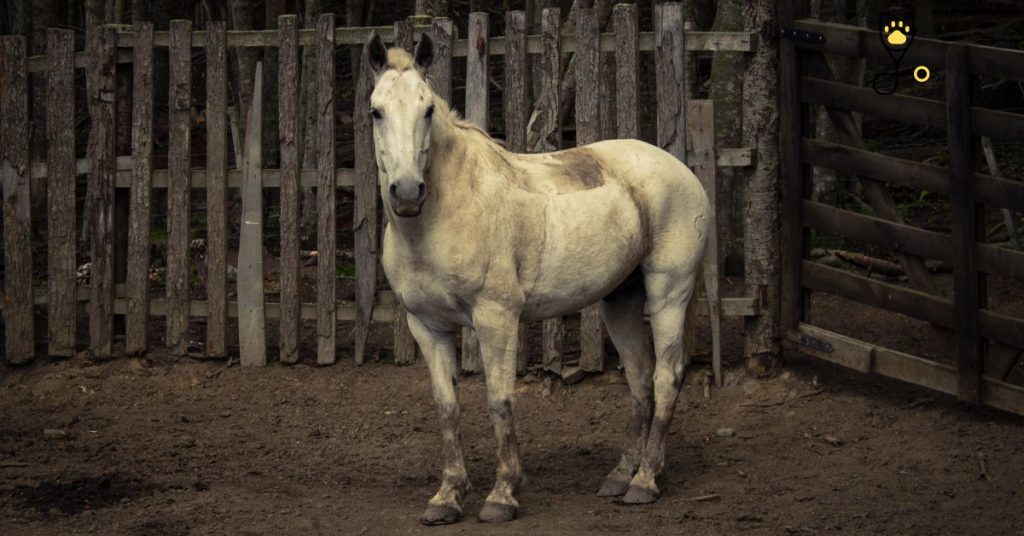
3. Riding Without a Helmet
Riding without a helmet is one of the most dangerous things you can do when it comes to horseback riding. Even if you are an experienced rider, accidents can still happen and helmets provide protection from head injuries and other potentially fatal consequences. Wearing a helmet also sets a good example for young riders who may be less aware of the dangers associated with riding horses. Make sure that your helmet always fits properly so that it offers maximum protection without being uncomfortable. It should also meet safety regulations and be regularly inspected for any potential damage. Helmet accessories, such as a sun visor or a shield to protect against insects, can also help increase your comfort level while riding.
4. Overworking Your Horse
Horses are incredibly strong animals but they still need adequate rest in order to stay healthy and perform well. Overworking them can lead to exhaustion which can have serious consequences on their physical and mental well-being. Working your horse too hard can also cause them to become resistant or uncooperative during lessons, making it harder for you to achieve the desired results.
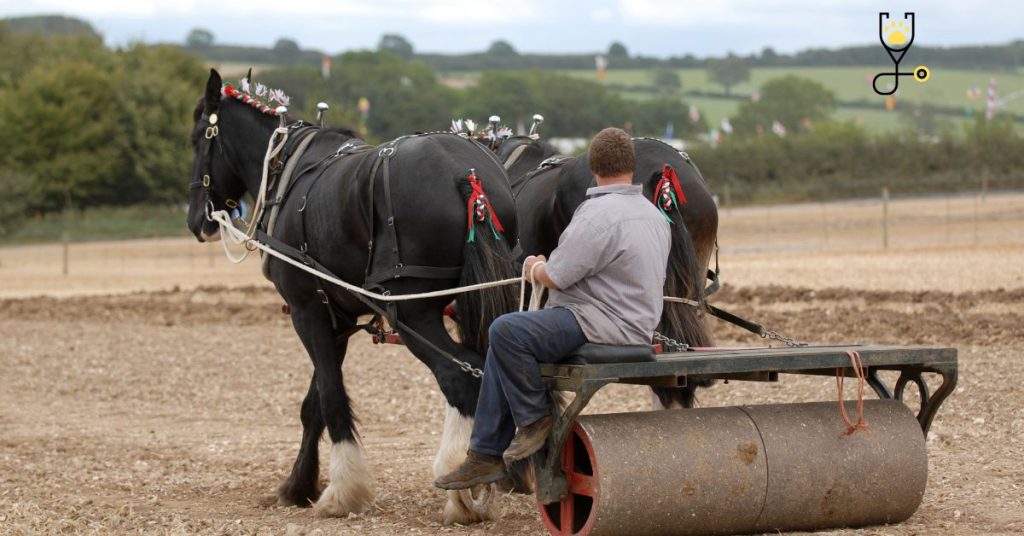
Therefore, it is important to consider your horse’s abilities and age when planning out training sessions in order to avoid overdoing it and causing harm. Make sure to give them plenty of breaks throughout the session and pay attention to any signs of fatigue or discomfort. In addition, listen to your horse’s body language and adjust your expectations accordingly. If they are struggling with a certain exercise, move on to something else instead of pushing them too hard. Following these tips can help you ensure that you and your horse have a safe and enjoyable time together.
5. Not Listening To Your Horse
Your horse is trying to tell you something but you’re not listening? Horses are incredibly perceptive animals and often use body language as their primary way of communicating with us humans. Paying close attention to subtle cues, such as ears twitching or nostrils flaring, can help detect any distress or discomfort your horse may be feeling. It is important to respond quickly to these signals in order to avoid further injury or stress.
6. Not Being Prepared For a Ride
Are you jumping on your horse without taking the time to check for any potential issues? It is important to take the time to inspect your equipment and make sure that it is in good condition before each ride. From saddles, bridles, and stirrups to boots, helmets, and other protective gear – all of these items should be checked for any wear or damage before setting out. Additionally, make sure that your horse has been groomed properly and its hooves trimmed if necessary.
7. Not Paying Attention To the Environment
When riding outdoors, it is important to be aware of your surroundings in order to stay safe. Always pay attention to potential hazards such as trees, fences, and other obstacles that may get in the way. It is also a good idea to take note of any wildlife or livestock that may cross your path during the ride. Being aware of your environment can help you avoid unexpected surprises while on horseback!
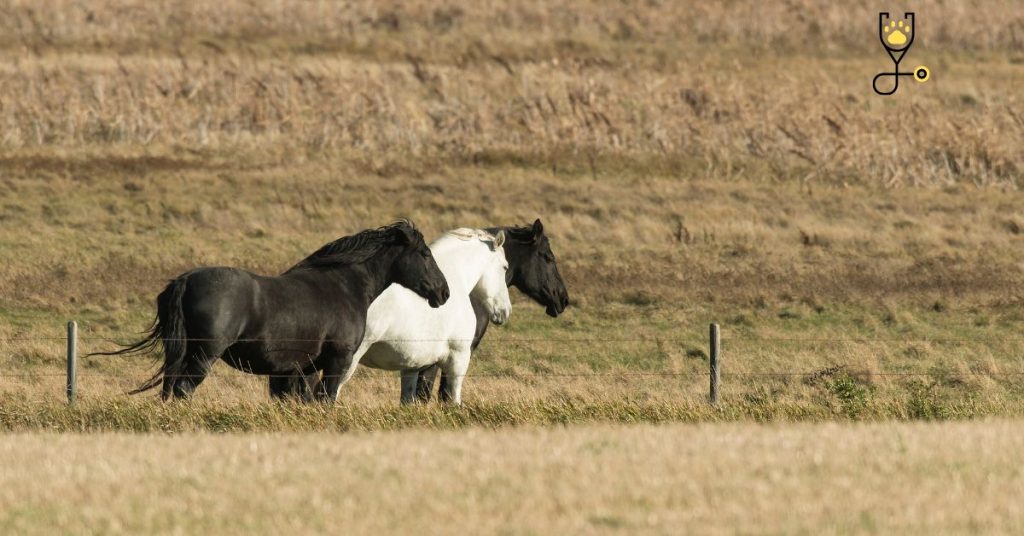
8. Ignoring Your Horse’s Needs
Horses need regular exercise, a balanced diet, and proper grooming in order to stay healthy and perform their best. Neglecting these needs can have serious consequences on their overall well-being so make sure that you always prioritize them first. Additionally, make sure to give your horse proper attention and affection in order to form a strong bond between the two of you. Taking the time to recognize and respond to your horse’s needs is an essential part of responsible horse ownership.
Conclusion
Horse riding is an incredibly rewarding activity and can bring joy to both you and your horse. However, in order to ensure a safe and enjoyable experience, it’s important to be aware of the potential risks involved. Practicing good horsemanship will help you and your horse stay out of harm’s way while having fun together. So don’t forget to take the necessary precautions before each ride – because your horse deserves nothing less!
Frequently Ask Questions
Q: How often should I groom my horse?
A: Grooming your horse regularly is essential for keeping their skin and coat healthy. Depending on the type of coat, you should be grooming your horse at least once a week or more if needed. Make sure to use the appropriate brushes and combs in order to avoid damaging their coat.
Q: What are some signs that my horse is getting too tired?
A: Some common signs of fatigue include reduced responsiveness, heavy breathing, excessive sweating, and reluctance to move forward. If you notice any of these symptoms while riding, take a break and let your horse rest before continuing. It’s better to err on the side of caution when it comes to your horse’s health and well-being.
Q: Is it safe to ride when the weather is bad?
A: It is not recommended to ride in inclement weather, as this can increase the risk of injury or distress for both you and your horse. If you must venture out on a rainy or windy day, make sure that you take extra precautions in order to stay safe. Additionally, pay attention to any changes in your horse’s behavior while riding so that you can respond quickly if necessary.
Q: What should I do if my horse is scared?
A: If you notice that your horse is displaying signs of fear or anxiety, it’s important to take the time to address their concerns. Take a moment to calmly assess the situation and determine what is scaring them. You can then use a variety of techniques such as groundwork, desensitization, and positive reinforcement to help them become more comfortable in their environment. Above all else, make sure that you remain patient and understanding throughout the process.
Q: Are there any special considerations for riding an unfamiliar horse?
A: When riding an unfamiliar horse, it’s important to be extra vigilant in order to ensure safety. Make sure that you take the necessary time to get acquainted with the horse before attempting any more advanced maneuvers. Additionally, pay close attention to their body language and behavior so that you can respond accordingly. With proper care and respect, a new partnership between you and your horse can quickly develop into something special!
No matter your skill level or experience, it’s important to remember that riding horses comes with inherent risks. Always exercise caution and use good judgment when approaching any situation involving horses in order to keep yourself – and your four-legged companion – safe. By following these guidelines, you can ensure that every ride is an enjoyable one for both of you! Happy trails!


